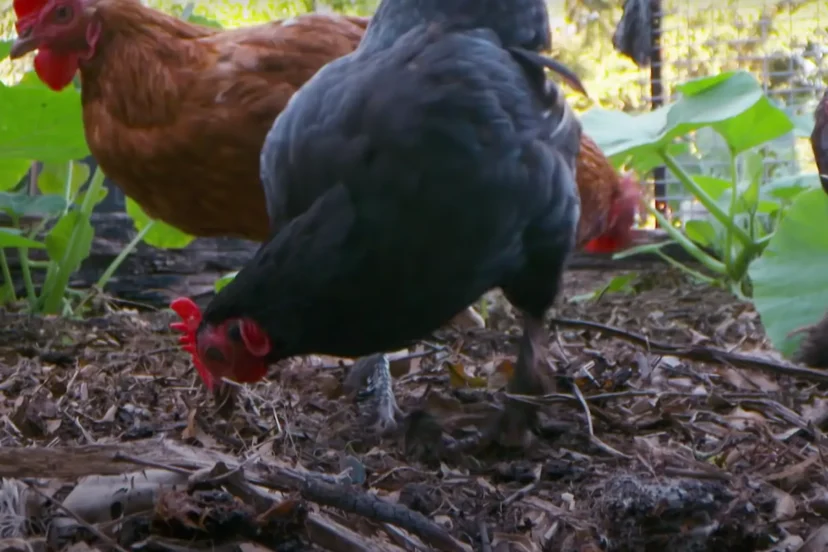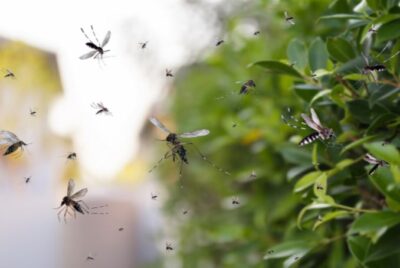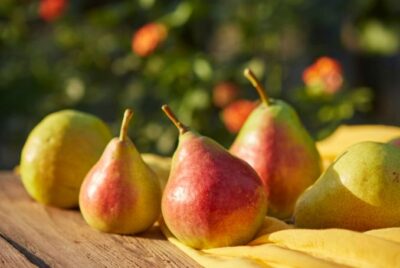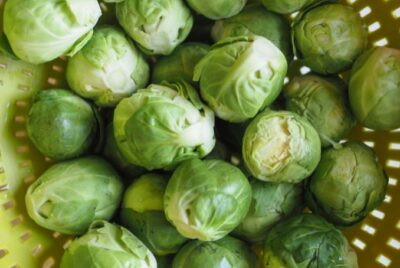Black Soldier Fly Larvae for Chickens: A Nutrient-Rich Solution
Are you struggling to provide your chickens with a nutritious and cost-effective food source? In today’s challenging agricultural landscape, finding a solution to meet the dietary needs of your flock while minimizing food waste can be a daunting task. However, there is a promising answer to this common problem: black soldier fly larvae.
These nutrient-rich larvae offer a practical and sustainable solution that not only enhances the health and productivity of your chickens but also addresses the challenges of feeding poultry in a competitive and environmentally responsible manner.
In this guide, we will delve into the world of black soldier fly larvae and explore how they can be a game-changer for your poultry operation.
What Are Black Soldier Fly Larvae?
Black soldier fly larvae, scientifically known as Hermetia illucens, are tiny insects that offer significant nutritional benefits for chickens. They are rich in fat, protein, essential minerals, and vitamins, making them an excellent addition to your chickens’ diet, especially during the winter months.
Raising these larvae requires minimal skills and expense, making it an accessible source of nutritious food for your chickens. These larvae play a crucial role in the ecosystem by converting organic waste, such as rotting food, into valuable resources.
Importantly, they pose no disease risk and have no stinging parts, ensuring their safety for production and use on your farm. They are different from mealworms and can often be found naturally in various parts of the United States, particularly in southern states. Their ease of cultivation can provide your chickens with a healthy and engaging treat while helping you save time and money.
Lifecycle of Black Soldier Fly Larvae
The lifecycle of black soldier fly larvae can be broken down into four distinct stages:
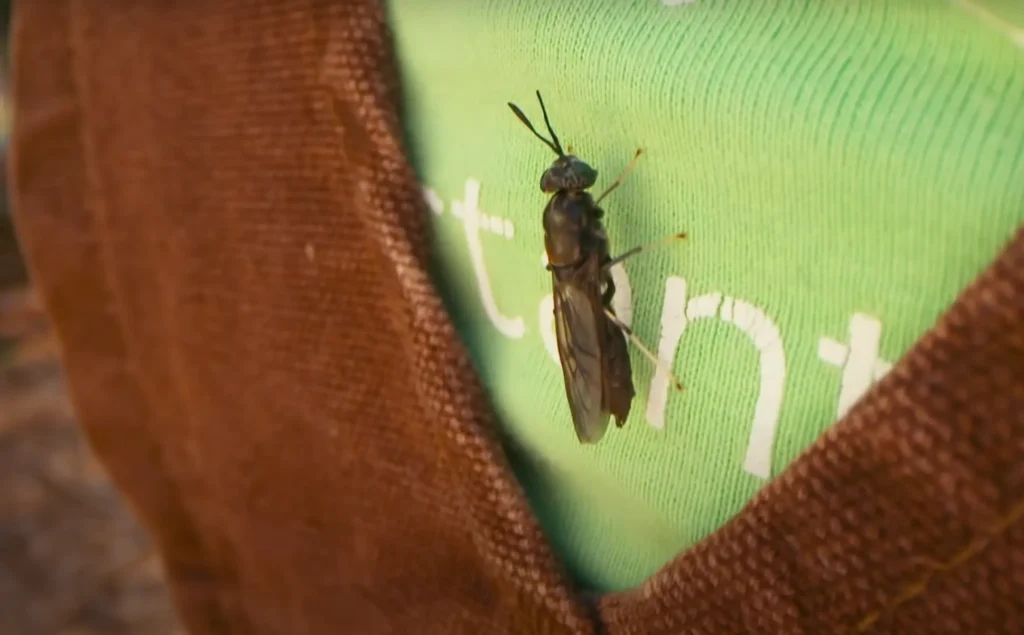
- Adult Stage: An adult black soldier fly has a relatively short lifespan of up to nine days, with many not living beyond five days. During this time, mature black soldier flies deposit eggs, typically up to 800, near decaying food sources.
- Egg Stage: The eggs laid by adult black soldier flies form the basis for the next stage, known as the egg stage. These eggs are commonly found around rotting food or compost. Within just four days, these eggs hatch, giving rise to the larvae.
- Larval Stage: The larval stage is the longest phase in the black soldier fly’s lifecycle, lasting for approximately two weeks. During this period, the larvae consume food, excrete waste, and play a crucial role in converting organic waste into valuable material.
- Pupal Stage: In the final stage, known as the pupal stage, the larvae transform into adult black soldier flies. This stage typically lasts about one week and is characterized by the highest nutritional content in the pupa.
Are Black Soldier Fly Larvae Good for Chickens
Yes, black soldier fly larvae are an excellent and highly nutritious food source for chickens. They offer several benefits:

High Nutrition
Black soldier fly larvae are packed with essential nutrients, including protein, fat, vitamins, and minerals. They provide a well-rounded and balanced diet supplement for chickens.
Protein-Rich
Chickens require protein for healthy growth and egg production. Black soldier fly larvae are exceptionally rich in protein, making them an ideal addition to the chicken’s diet, especially during times when they need extra nutrition.
Fat Content
The larvae are also high in fat, which can be beneficial during colder months as it helps chickens generate heat and maintain their body temperature.
Minimizes Waste
Chickens love to forage insects, and feeding them black soldier fly larvae can help reduce food waste on your farm since the larvae can consume organic waste, such as kitchen scraps and compost, turning it into valuable chicken food.
Engagement and Enrichment
Providing black soldier fly larvae as treats can keep chickens engaged and prevent boredom, especially during the winter months when they may have limited outdoor activities.
Safe and Easy to Raise
Black soldier fly larvae are safe to produce and use on your farm. They don’t carry diseases and are straightforward to cultivate, requiring minimal effort and expense.
Nutrients in Black Soldier Fly Larvae
Black soldier fly larvae are rich in essential nutrients, making them a valuable food source for various animals, including chickens. Here are the key nutrients found in black soldier fly larvae:
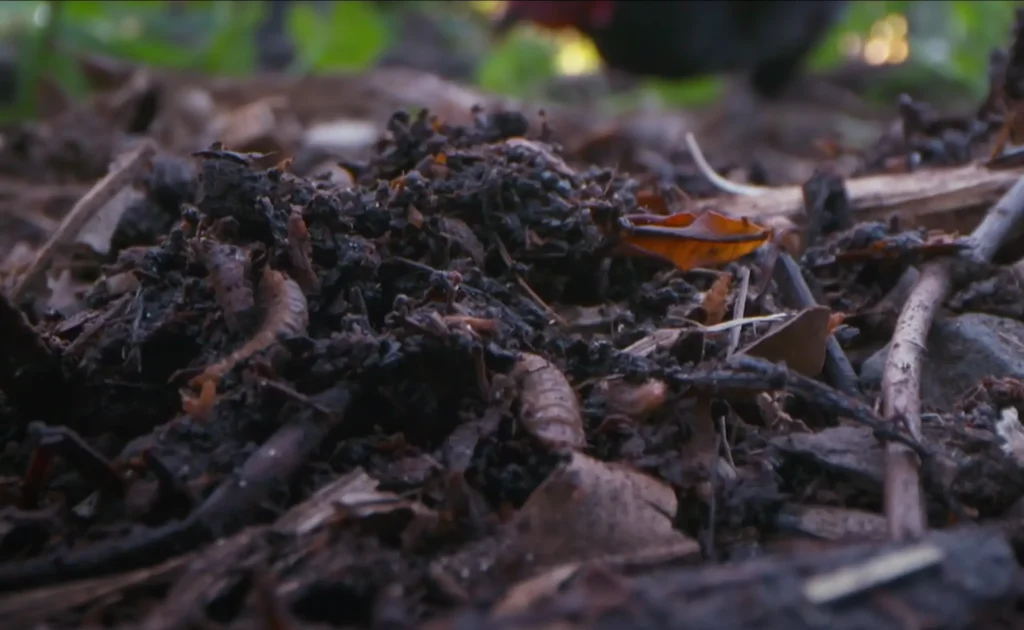
- Protein: Black soldier fly larvae are exceptionally high in protein, with levels ranging from 35% to 60% of their dry weight. This makes them an excellent source of protein for animals like chickens, aiding in muscle development, egg production, and overall growth.
- Fat: These larvae are also rich in fat, typically containing around 30% to 40% of their dry weight. The fat content can be beneficial for providing energy, especially during cold weather, and supporting healthy feather development.
- Calcium: Black soldier fly larvae contain significant amounts of calcium, which is essential for strong eggshells and overall bone health in chickens.
- Phosphorus: They provide a good source of phosphorus, which is vital for bone formation, energy metabolism, and overall growth in chickens.
- Vitamins: Black soldier fly larvae are rich in vitamins, including B vitamins (B1, B2, B3, B5, B6, B7, B9, and B12), vitamin A, vitamin D, and vitamin E. These vitamins play various roles in supporting the immune system, metabolism, and overall health.
- Minerals: In addition to calcium and phosphorus, black soldier fly larvae contain other essential minerals such as magnesium, potassium, and zinc, which contribute to the overall nutritional value.
- Fiber: They also contain some dietary fiber, which can aid in the digestion of chickens.
- Chitin: While not a nutrient, chitin is a component found in the exoskeleton of black soldier fly larvae. It can provide some mechanical benefits for chickens, helping to clean their digestive tracts.
How To Feed Black Soldier Fly Larvae to Chickens
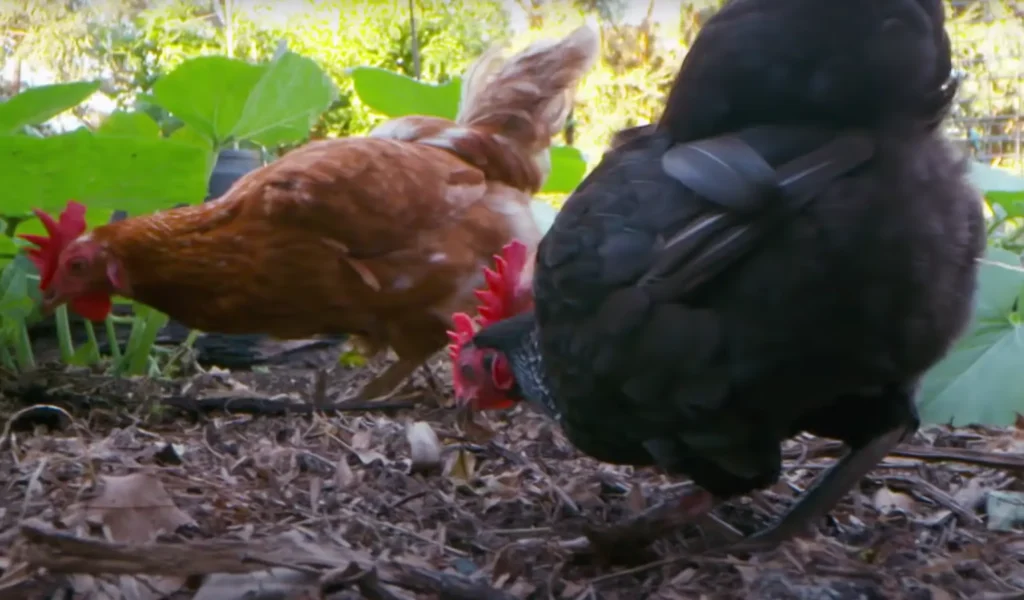
Step 1: Determine Quantity
Start by deciding how many larvae you want to feed your chickens. You can begin by replacing a small portion of your chickens’ regular feed with black soldier fly larvae and gradually increase the amount as needed. There’s no fixed percentage, but a common starting point is to replace around 10% of their regular grain.
Step 2: Live Larvae
If you choose to feed live black soldier fly larvae, you can simply scatter them in your chicken coop or run. Chickens enjoy hunting and pecking, so watching them chase after live insects can be both entertaining and enriching for them.
Step 3: Freeze or Dry
To feed dead black soldier fly larvae, you have two options:
- Freeze: Place the larvae in a freezer to kill them. Once frozen, you can thaw them before feeding them to your chickens. Freezing helps preserve the larvae for future use.
- Dry: Drying black soldier fly larvae is another option for long-term storage. You can use a solar oven, household oven, or a food dehydrator to dry them. Spread the larvae on a tray and set your chosen appliance to a low temperature (around 140°F or 60°C) to ensure they dry thoroughly. Once they’re dried, you can store them in an airtight container.
Step 4: Mixing with Feed
If you want to incorporate black soldier fly larvae into your chickens’ regular feed, simply mix the larvae with their grains or pellets. Ensure that the mixture is well-balanced to provide the necessary nutrients.
Step 4: Monitor
Keep an eye on your chickens to ensure they are enjoying the larvae. Chickens usually love the taste and the activity of hunting for live insects.
Step 5: Consult Your Veterinarian
It’s always a good idea to consult with your veterinarian regarding the dietary changes you make for your chickens. They can provide specific guidance based on your flock’s needs.
How To Build DIY Black Soldier Fly Farm
Creating a DIY black soldier fly farm can be an eco-friendly way to produce nutritious food for your chickens or other animals while recycling organic waste. Here’s a step-by-step guide on how to build your own black soldier fly farm:

Materials You’ll Need:
- Large container or bin
- Black soldier fly larvae starter culture
- Organic waste (e.g., kitchen scraps, food scraps, compostable materials)
- Ventilation mesh or screen
- PVC pipe or tubing
- Shade cloth or burlap sack
- Wooden planks or blocks
- Bricks or cinder blocks
- Drill
- Zip ties or wire
- Plastic sheet or tarp (optional)
- Lid or cover (optional)
Step 1: Choose a Location
Select a suitable location for your black soldier fly farm. It should be a spot that receives partial shade to prevent the interior from overheating. Avoid areas prone to flooding.
Step 2: Prepare the Container
Use a large container or bin as the main structure for your black soldier fly farm. Ensure it has a secure lid or cover to keep pests out.
Step 3: Create Ventilation
Drill holes around the sides of the container for ventilation. Cover these holes with ventilation mesh or screen to allow for airflow while preventing pests from entering.
Step 4: Add Organic Waste
Begin by placing a layer of organic waste at the bottom of the container. This will attract the black soldier fly adult females to lay their eggs.
Step 5: Introduce Starter Culture
Obtain a black soldier fly larvae starter culture (often available online or from local breeders). Release the starter culture into the container.
Step 6: Build a Ramp
Create a ramp or incline inside the container to facilitate the larvae’s movement out of the container as they mature. You can use wooden planks, blocks, or bricks for this purpose.
Step 7: Provide Shelter
Construct a shelter above the container using PVC pipe or tubing and shade cloth or a burlap sack. This will help protect the larvae from direct sunlight, rain, and predators.
Step 8: Collect Harvest
Once the larvae are mature, they will naturally crawl up the ramp and drop into a collection bin or area below. This is where you can easily harvest them for feeding your chickens or other animals.
Step 9: Maintenance
- Regularly add organic waste to the container to keep the larvae fed and happy.
- Monitor the farm for larvae development and adjust as needed.
- Occasionally clean out any remains or waste from the container to maintain a healthy environment.
Optional Steps:
- To increase efficiency and manage odor, you can install a drainage system by drilling holes in the container’s bottom and placing it on a plastic sheet or tarp to collect excess liquids.
- Adding a lid to the container can help maintain a controlled environment and prevent pests from accessing the larvae.
Building a black soldier fly farm may take some initial effort, but it can be a rewarding and sustainable way to produce high-protein food for your animals while reducing organic waste.
How to Properly Harvest Black Soldier Fly Larvae
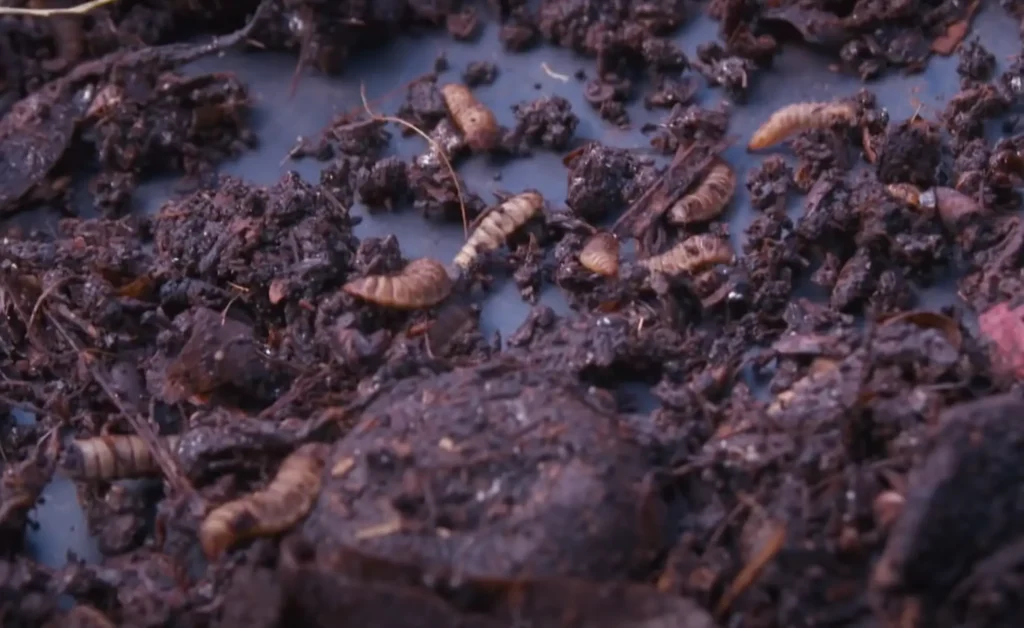
To properly harvest black soldier fly larvae, begin by monitoring their maturity. They are ready for harvest when they turn black and reach approximately 1 inch in length.
Next, provide exit ramps within the larvae container, typically using wooden planks or ramps, leading from the larvae area to a designated receiving bin. Allow the mature larvae to crawl off the bedding material and follow the wooden planks towards the receiving bin, as this is an instinct when they seek a suitable pupation site.
Regularly inspect the receiving bin for the presence of mature larvae, and once you notice a significant number, collect them either by hand or with gloves. Optionally, you can freeze the larvae for later use or consider freeze-drying them for long-term storage, as dried larvae have an extended shelf life and can be used as snacks for your animals over time.
Properly harvested black soldier fly larvae are a valuable and nutritious food source for your chickens or other animals.
Read also: Best Bugs and Insects for Chicken Nutrition
Feeding Your Chickens with Black Soldier Fly Larvae
Black soldier fly larvae are a nutrient-rich solution that offers numerous benefits for chickens and other animals. With their high protein and fat content, as well as essential vitamins and minerals, these larvae provide a well-rounded and balanced diet supplement. Not only do they support healthy growth and egg production, but they also minimize food waste by converting organic materials into valuable nutrition.
Harvesting these insects is a straightforward process, and their versatility in feeding options makes them a valuable addition to any poultry or animal husbandry operation.
This eco-friendly and sustainable approach not only enhances the health and well-being of your chickens but also contributes to a more efficient and responsible agricultural practice. Incorporating these larvae into your chicken feeding strategy is a win-win solution that benefits both your poultry and the environment.

